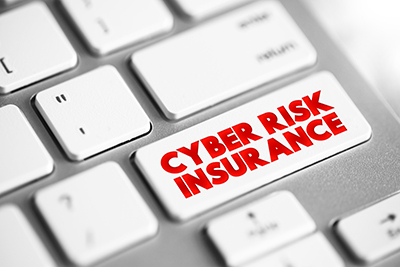In today’s interconnected digital world, cyber security is a critical issue for businesses of all sizes. While advances in technology have enabled businesses to reach new heights of productivity and profitability, they have also brought with them new risks and challenges. Cyber attacks, data breaches, and other online threats have the potential to cause significant damage to a business’s reputation, financial stability, and customer relationships. That is why cybersecurity insurance, also known as cyber liability insurance, is becoming increasingly important for businesses. In this blog post, we will explore why businesses need cyber liability insurance coverage and what to look for in a policy.
Why Businesses Need Cyber Liability Insurance
- Cyber Attacks Are On The Rise.
According to a recent report by the FBI’s Internet Crime Complaint Center, cybercrime has increased dramatically in recent years. The report showed that in 2020 alone, the FBI received over 791,000 complaints of suspected internet crime, with reported losses exceeding $4.2 billion. This trend is expected to continue, with cybercriminals becoming increasingly sophisticated and finding new ways to exploit vulnerabilities in business networks and systems. - The Cost of a Data Breach Can Be Devastating.
A data breach can be a costly and damaging event for any business. The costs can include legal fees, notification expenses, and lost revenue due to business interruption. A data breach can also result in lost customer trust and damage to a business’s reputation.According to the IBM 2020 Cost of a Data Breach report, the average total cost of a data breach was $3.86 million, with the average cost per record compromised being $150. These costs can quickly add up, and as a business owner, you need to be prepared to handle them or face severe financial consequences. - Any industries are subject to strict data protection and privacy regulations, such as HIPAA, GDPR, and CCPA. Failure to comply with these regulations can result in significant fines and legal expenses. Cyber liability insurance covers the legal costs associated with regulatory investigations and compliance requirements.
- Third-Party Liability
Businesses are often held liable for the actions of their vendors, suppliers, and other third parties. This includes the financial information of vendors and the personal information of clients. Cyber liability coverage can provide for the costs associated with third-party data breaches or other cyber incidents.
What to Look for in a Cyber Liability Insurance Policy
- Coverage for First-Party and Third-Party Losses
A cyber liability insurance policy should provide coverage for both first-party and third-party losses. First-party losses are those that directly affect the insured business, such as business interruption, loss of data, and costs associated with forensic investigations. Third-party losses are those that affect customers, vendors, or other parties, such as legal fees, regulatory fines, and the costs associated with credit monitoring or identity theft protection. - Limits and Deductibles
Cyber liability insurance policies typically have limits and deductibles, which can vary widely depending on the policy and the level of coverage desired. It is essential to carefully review the limits and deductibles and ensure that they are adequate to cover potential losses. - Incident Response Coverage
A cyber liability insurance policy should include incident response coverage, which provides support and resources to businesses in the event of a cyber incident. This coverage can include access to cyber experts, legal and PR support, and other resources to help businesses respond to and recover from a cyber attack. - Retroactive Coverage
Some cyber liability insurance policies may include retroactive coverage, which covers incidents that occurred before the policy was purchased. This can be an important consideration for businesses that may have already experienced a data breach or cyber incident.As technology advances, businesses have more opportunities to connect with customers, partners, and suppliers in new and innovative ways. But with these opportunities come new risks, especially when it comes to cybersecurity. Cyber attacks, data breaches, and other online threats can cause significant damage to a business’s reputation, finances, and customer relationships. This is why cyber liability insurance, also known as cyber insurance, is becoming increasingly important for businesses of all sizes.
Why Does My Business Need Cyber Liability Insurance?
- Cyber Attacks Are Increasing
With more businesses relying on digital technology, cyber attacks are becoming more common. A cyber attack can come from anywhere, including hackers, malware, or even employees. The goal of a cyber attack can be to steal information, disrupt operations, or cause damage to a business’s reputation. Cyber liability insurance can help businesses respond to these attacks by providing resources to help recover from a breach and pay for any damages. - The Cost of a Data Breach Can Be Devastating
The cost of a data breach can be significant, especially for small businesses that may not have the resources to absorb the financial impact. A data breach can result in lost revenue, legal fees, and damage to a business’s reputation. According to a 2020 report by the Ponemon Institute, the average cost of a data breach was $3.86 million, with the average cost per record compromised being $150. Cyber liability insurance can help cover these costs and ensure that a business can continue to operate after a breach. - Regulatory Compliance
Many businesses are subject to data protection and privacy regulations, such as HIPAA, GDPR, and CCPA. Failure to comply with these regulations can result in significant fines and legal expenses. Cyber liability insurance can provide coverage for the legal costs associated with regulatory investigations and compliance requirements. - Third-Party Liability
Businesses can also be held liable for the actions of third-party vendors, suppliers, and other partners. Cyber liability insurance can provide coverage for the costs associated with third-party data breaches or other cyber incidents. - Incident Response Coverage A cyber liability insurance policy should include incident response coverage, which provides support and resources to businesses in the event of a cyber incident. This coverage can include access to cyber experts, legal and public relations support, and other resources to help businesses respond to and recover from a cyber attack.
In conclusion, cyber liability insurance is becoming increasingly important for businesses of all sizes. Cyber attacks are on the rise, and the costs of a data breach can be devastating. Regulatory compliance and third-party liability can also be significant concerns for businesses. Cyber liability insurance can provide coverage for the costs associated with these risks and help businesses recover after a breach. So, if you’re wondering why your business needs cyber liability insurance, it’s because it can help protect your business and your customers from the damaging effects of cyber attacks.






